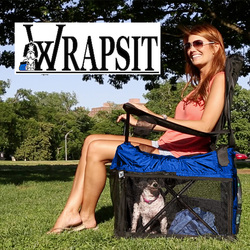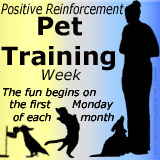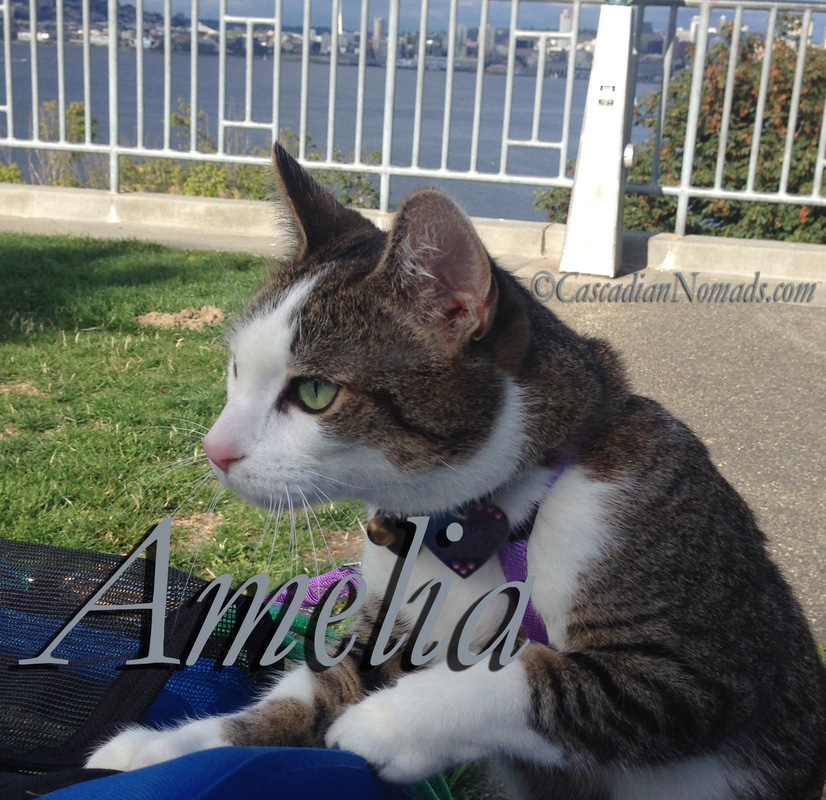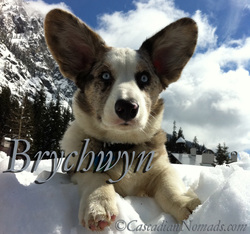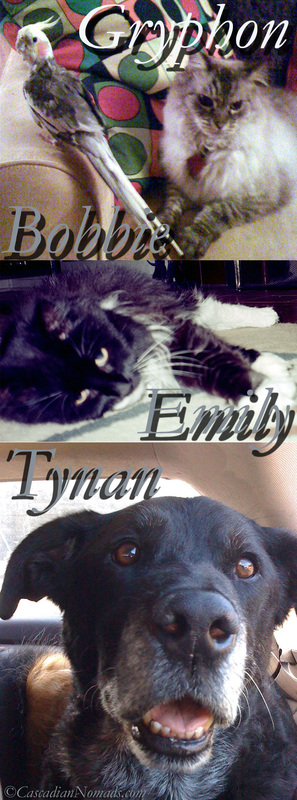|
Typist: Bethany
Concerned about upcoming dog friendly travel plans, I have been reading a lot about the recent canine influenza outbreak in the Midwest. I worried that maybe I needed to avoid traveling through areas hit the hardest by the new strain of canine influenza, H3N2. It also occurred to me that other dogs enjoying pet friendly road trips this spring, summer and fall, might spread the disease to new states, especially making dog parks and day boarding facilities risky. I reached out to Dr. Brian Hur, a veterinarian from Seattle to address some of my concerns. Through Dr. Hur and my research, I learned that no, we do not need to amend any of our travel routes. However, we do need to alter some of our pet friendly activities and have heightened awareness regarding pet travel precautions that we already take. |
One of my favorite things about traveling with the dogs is exploring the dog parks of areas we visit. Since avoiding other dogs reduces the risk of catching the disease, I think we'll stick to family play time until a vaccine for this particular strain of canine influenza is available. Day boarding is not a part of any of our upcoming travels but I believe facilities that can be cleaned and sanitized are probably safe places for traveling dogs. As always, it is extremely important to make sure any boarding facility carefully monitors the health of entering dogs. If I was planning boarding for my dogs anytime soon, I would add asking if the H3N8 vaccine (which uncertainly prevents H3N2) is required for boarders and what the facility policies are for quarantining dogs that get sick during their stay to my already long interview list. I asked Dr. Hur how long he thinks dog friendly places like dog parks and day boarding facilities where canine influenza has spread should be avoided:
"There's no way to know for certain. However, while avoiding exposure to other dogs will reduce the risk of your dog catching disease, dog boarding facilities will hopefully be doing there part by not allowing symptomatic dogs into their facilities, so hopefully people will not have to change their daily routines. Also, it is likely that eventually a new vaccine will eventually be introduced to provide protection from this new strain of influenza." |
When out and about with the dogs, I never let them drink from any lakes or streams because of the massive risk of bacteria. I have also taught the dogs to never drink from public dog bowls unless given permission. Public dog bowls often look clean but they can have many hidden germs including the H3N2 virus. When I worked at a dog day care facility, we employees spent more time changing dog water and washing water bowls than any other task. The dogs health was paramount and that cleanliness step was very important. Hence, I always pack my own dog water bowls and dog water. It is a simple step to ensure the dogs avoid unnecessary exposure to germs. Plus, when I always have my own water I can be certain the dogs stay hydrated which keeps their immune systems strong especially while on the road.
I have been traveling with dogs my entire life and Wilhelm, Brychwyn, Huxley and I have visited nineteen states and a province together. Even we expert travelers can get stressed on a journey and anxiety has detrimental effects on the immune system. I am very familiar with signs of stress in my dogs as well as all of their little traveling health idiosyncrasies. For example, Huxley often eats very little between day four and six of a long road trip. I always bring along canned pumpkin ad baby food to coax him into dining if needed. Huxley never has any other signs of illness such as vomiting, diarrhea or lethargy and he always bounces back to eating once he settles into the routine of the journey. When traveling this spring and summer, I will be hyper aware of even the slightest not normal change in the dogs stress levels. Dr. Hur answered my question about how to keep traveling dogs immune systems with a reminder about awareness as well:
"If you are traveling, just be aware that the stress of travel decreases your pet's ability to fight off disease. It's important to let your pet get plenty of rest after travel and if you have a pet that is coughing, has nasal discharge or is acting more lethargic than normal, be sure to get them seen by a veterinarian and avoid exposing your pet to other pets."
There is absolutely nothing worse than a sick pet, especially while traveling. Part of the pet friendly trip planning I do is to map out nearby vets wherever we stay. I do my best to familiarize myself with veterinarian offices and emergency vets all along our planned travel routes. Obviously, my smart phone can help me find a local vet in seconds if needed but I don't always know I will have reception. Once a vet has been found, it is essential to have all of the sick dogs health records ready which is why I keep a print out for each pet in my first aid kit. While health certificates are not required for many airlines or for road trips, a pet that is not up to date on routine health care and vaccines should never travel particularly because of the need to be prepared for an emergency. A visit to a strange vet while traveling can turn into a huge hassle if the dog owner cannot quickly and easily provide up to date health records. I am fortunate to have never had to have this anxiety ridden and possibly expensive experience but I believe in being prepared.
"Yes, even in the areas where canine influenza is prevalent, the risk of catching the disease is still relatively low at this time."
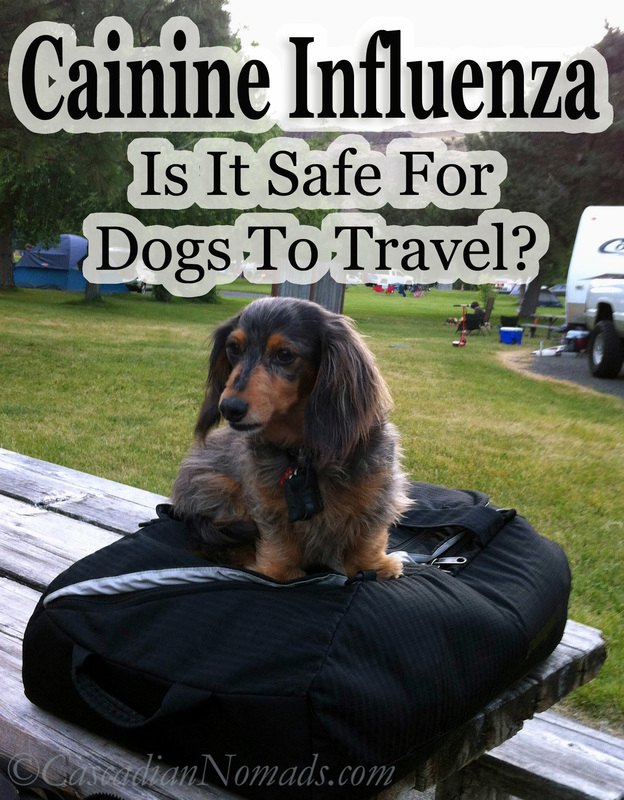
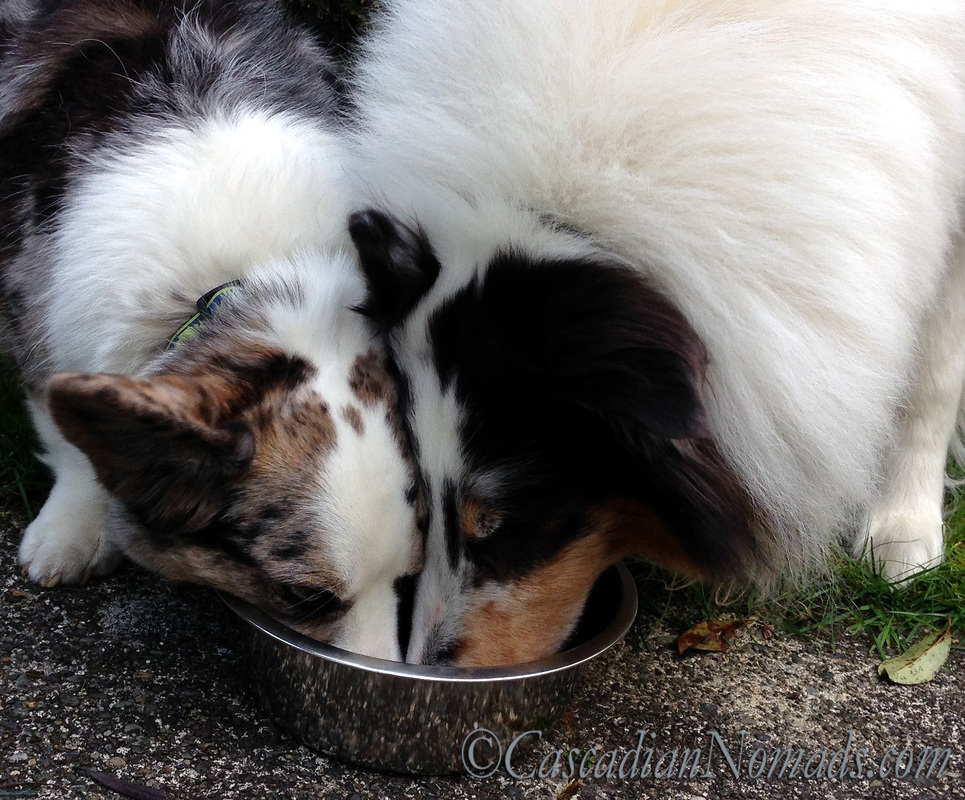
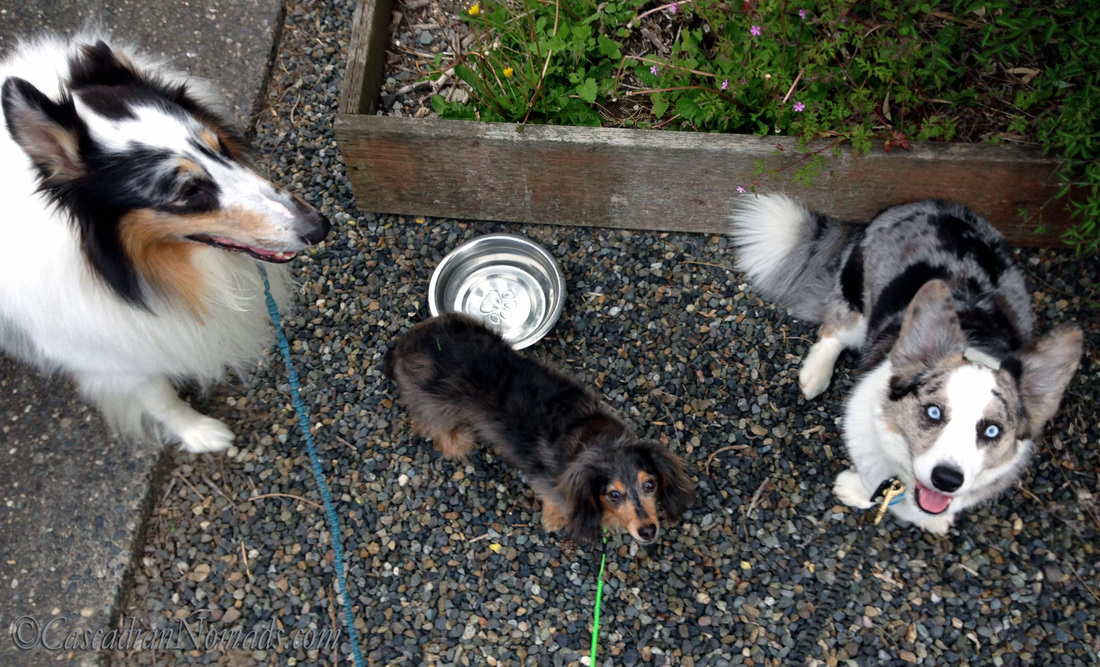
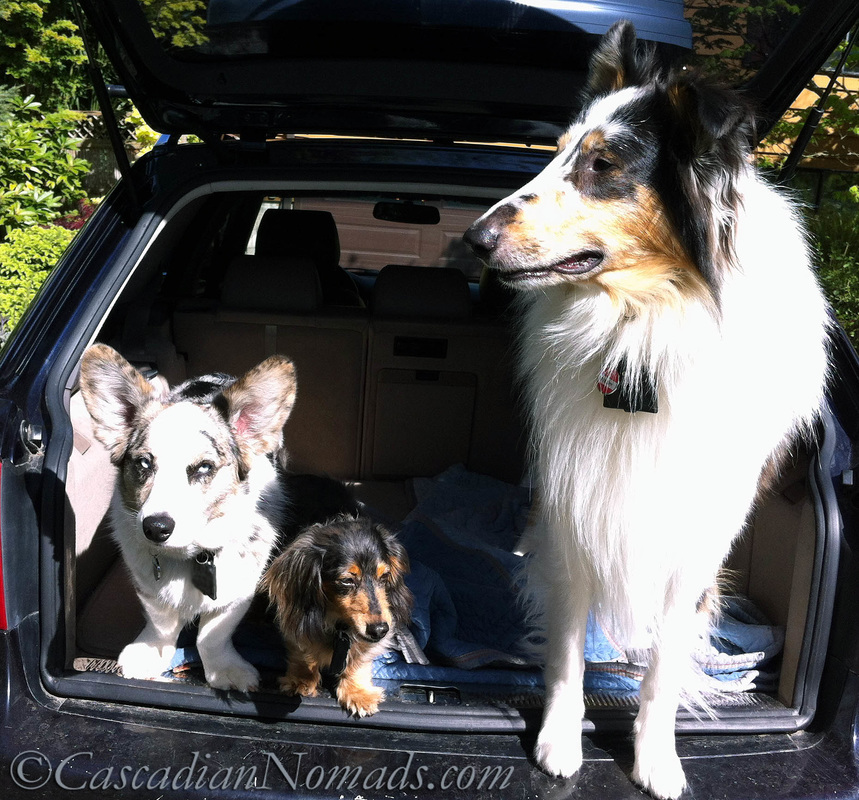
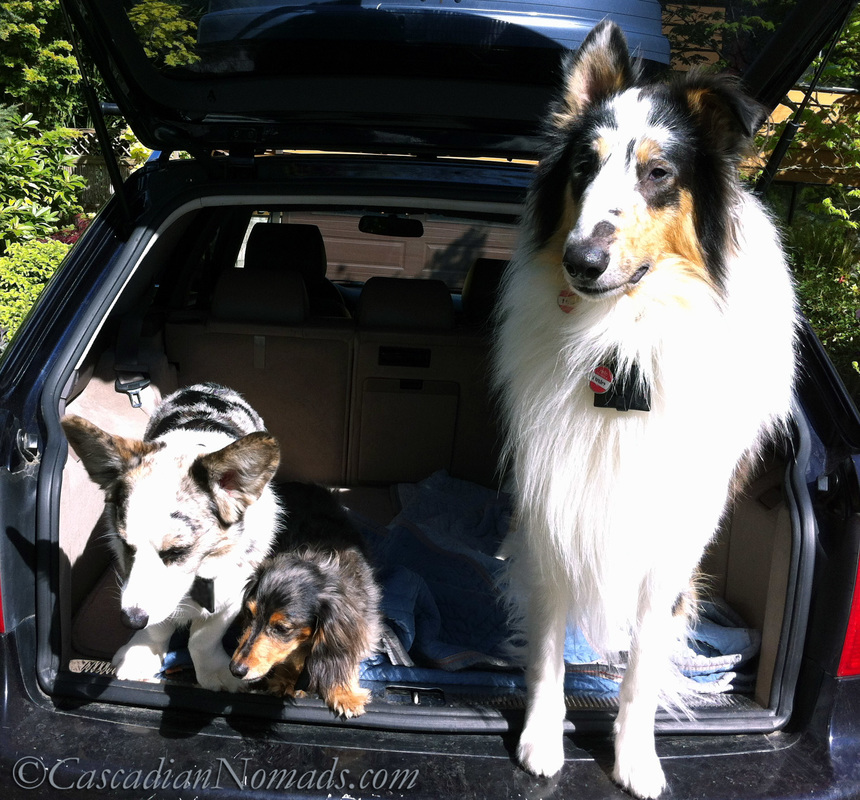
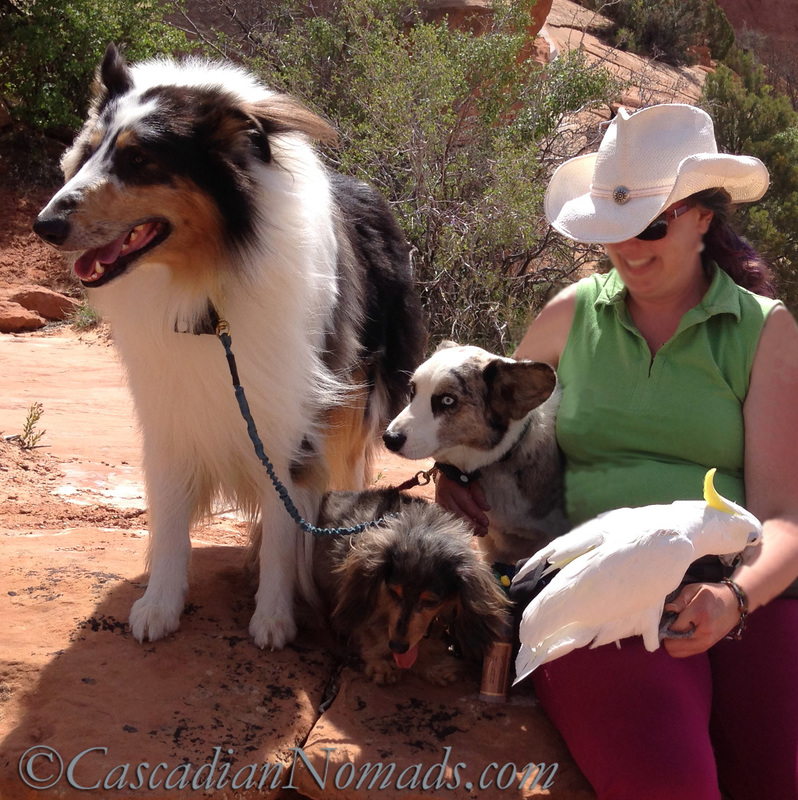
 Follow on Instagram
Follow on Instagram


